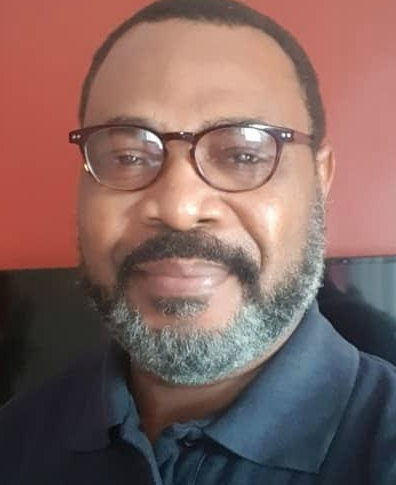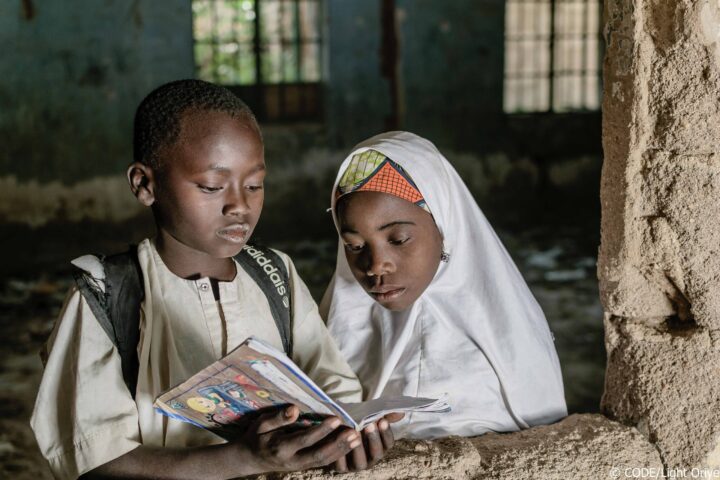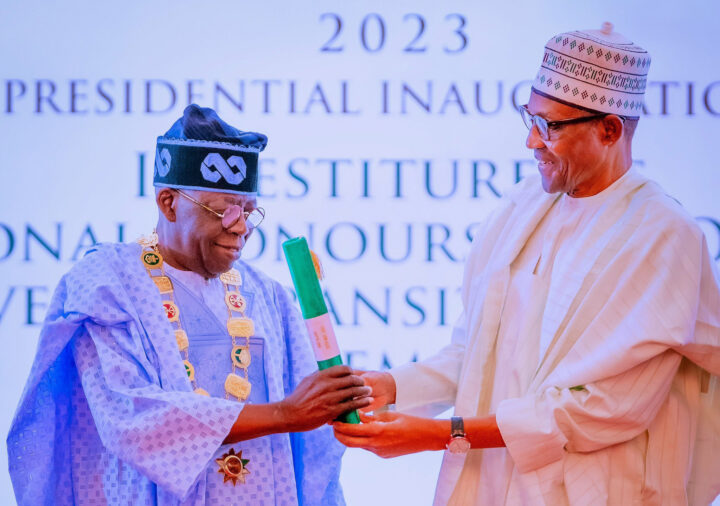All death is bad. To die in one’s sleep does not make it any less so. If anything, it makes it even more so. For the living, those left to mourn, the shock can be paralyzing; in fact, it does paralyze – like the death of Prof. Anselm Emevwo Biakolo. A professor emeritus of Pan Atlantic University, Lekki in Lagos, Biakolo passed on in his sleep on February 8, 2024. People who saw him a few hours before he died said he spent the day in his office. That would suggest that he had no obvious physical distress, not to talk of a hint of death. But that’s the manner of such death. It slitters in and stealthily picks its prey, and let the world bleed all it can.
I knew Prof. Biakolo fairly intimately. He was not just my lecturer in the English Department of University of Ibadan, he was my friend. We were friends in the sterner, sterling sense of the word. He had an arresting personality, which was the first attraction. It was in my first year in the early 80s and he had come to the class to introduce us to poetry. “We shall be studying the poem Gerontion, written by T. S. Eliot,” he told us after introducing himself. At the time, he was assistant lecturer and working on his PhD in the department. So he was simply a “Mr.” Prof Isidore Okpewho, a luminary in oral literature, was his supervisor (he passed on in 2016). There were two other assistant lecturers in the department like him pursuing their PhD programme at the time. These were: Harry Garuba and Remy Oriaku – brilliant and ambitious individuals.
Back to the first encounter and with T. S. Eliot’s Gerontion. That first lecture, we didn’t find Biakolo accessible and his approach to the poem made it all the more esoteric. To complicate our bewilderment, Eliot was particularly not an easy poet to unravel, not even to a dilettante and obviously not to freshers like us. But he was charming, Biakolo, that is. He was slim and tall; delicate and serious, but not stern. Throughout the lecture, his face never cracked into a smile, but there was something agreeable about him, something hypnotic. His voice rang like a new bell – firm and clear. Its cadences were passionate and sure, in the manner of a rhetorician. He was your portrait of an academic and you could tell that he was an intellectual of the original mould, though without a dash of a nerd. That first day, I fell in love with him. Even though we didn’t quite understand his analysis of the poem, enough to stir our irritation and resentment, something indefinable about him was comforting and assuring. He was easy to like, too easy to like – and many of us did, from that first meeting. One more thing: From that day, we started calling him “Gerontion” – behind his back, of course!
We became closer in my second year when I started trying my hand on writing articles for newspaper publication. I would write and run the piece by him for his opinion and advice. I think he was impressed by the things I was scribbling. Once, he said to me half-jokingly and completely solemnly, “O’boy, true o, I think you can end up in The Guardian. I’m serious! But you have to work hard and get your degree first.” We just laughed about it. This time, we had become very close, intimate even. Our relationship had gone far more than that of lecturer-and-his-student’s. We usually go to eat at a buka beside the Faculty of Arts. He would eat amala, I preferred lafun, probably because it was the closest stuff to fufu. Everyone called him Biaks. Occasionally, we would stop by the Students’ Union Building (SUB) to drink some beer. He was not strong in that department. More than a bottle would knock him over.
Advertisement
Sometimes, too, I’d join him with Harry Garuba, Dipo Irele (then assistant lecturer in Philosophy Department), and some other students like Chiedu Ezeanah, Nduka Otiono and Afam Akeh. In that party were also older friends like Oga Sam Loco and Oga Joe Emordi. I’m not sure now what Sam Loco’s status was, but I know that Emordi was a staff of the university, working in the Audio Visual Unit located at the basement of what is now Communication and Language Arts Department. Both men were also regular features in the university’s Arts Theatre, now Wole Soyinka Theatre.
Biakolo was residing in Agbowo, the bourgeoning settlement across the road facing the university’s gate. He lived with his wife, Margaret, and their three kids, the eldest we fondly called Okpaks. My girlfriend, Bola, slid into the mix and the relationship with the Biakolos became what you could easily say was one of “family friends.” Bola and I were in the same English Department and she was to become my wife years later. As such things go, and as women are wont, Bola and Margaret hit it off as friends too. Effectively, Biakolo was my lecturer only in my first year, but I always run to him for things academic in the remaining years of my study.
Out of school and a few years later, we met again in The Guardian. He was a visiting member of the editorial board and I was writing for African Guardian magazine – the substance of his prescience, you’d say. The Editorial Board was meeting every Wednesday. Sometimes when he couldn’t make it back to his Ibadan base after his editorial meeting, he would come over to stay with Bola and me in our Aguda, Surulere abode. This time, Bola and I had married and had become man and wife. He never changed from the person we knew years prior. He was untouched, neither by the tyrannies and tinkerings of time nor by the change in his status. He had become Doctor, a PhD holder and well inveterated in the society of academia.
Advertisement
To know him was to be acquainted with a great soul, a man with an intellect as sharp as serpent’s teeth. You could say he was devout. A passionate Christian stewed in Catholicism, Biakolo had the staring of a mystic. In his element, he wouldn’t just look at you, he would gaze into you, peer deep into you, to your soul. And, oh yes! He had such a poisonous sense of humour. Once, we were in my room in Mellanby Hall (Block C39). I was a smoker then. I wasn’t a social smoker, I was a committed and consummate smoker. This day in my room with him, I was smoking. Now, I took a long, hard drag on the cigarette. I allowed the nicotine to do its work and then pushed a billow of smoke out through my nose. Biaks looked at me with such a sarcastic amusement. As he did that, I knew he was going to say something nasty. And he did. “So next, the smoke go dey komot from your ear and your eye. Even all your hair will turn to smoke and you’ll become Hephaestus, the Greek god of smoke!” He said that in his peculiar, acerbic manner. I almost chocked with laughter. Jokingly, I offered him the stub of the cigarette and he shot at me: “You and who? I know I have many temptations, but this is definitely not one of them!” We never forgot that episode. It became one of our fond recollections of our fraternal days in UI.
Sometime in 1993, he left Nigeria and migrated to Botswana in Southern African where he started teaching in that country’s university, a professor. We reunited at his return to Nigeria and now Dean of School of Media and Communication, Pan Atlantic University. I called him My Teacher. In 2010 when we lost my mother in-law in Akure, he stayed out the three days with Bola and me for the burial ceremonies. The last discussion we had was some two years ago after a long time. Four years ago or so, older staff of The Guardian who worked there in the first 10 years of its founding got together into a group which they christened When the Flagship Led. I saw his name on the group’s WhatsApp platform and I sent him a direct message (DM). As though he had been waiting for it, he called and I picked. He said: “Bruce, na wa for you o! How’s that silly girl Bola?” “My Teacher,” I began with a deliberate tone, “I wish the news was different, but Bola is no more, she passed on,” He grieved, and said, “Margaret too has passed on. I’m sure you didn’t know of this.” Indeed, I didn’t know, and the information anguished me just as much. He then told me he was in the US and now that he had become Professor Emeritus and widower, he had registered for a degree programme in Family Counselling. He stressed the word, widower. I could relate with what he was going through and I figured that in the circumstances, he needed that engagement, or if you will, that distraction to be able to deal with the ennui that would certainly flood in.
Alas! It was not ennui that showed up. It was death, and it came while he was asleep.
Prof. Biakolo’s death is not just a loss to his family, friends and the numerous quality individuals who passed through his academic tutelage and mentorship. His death is another knock, another diminution of the finer aspect of us. He was sincere and sensitive, playful and permissive. But behind these civilities was the fiercely normative man. Ethical in the Puritan’s fashion, Biakolo was a man of simple but significant dreams. “I have certain ideals and I have always striven to uphold them,” he once told me in his office during our Guardian days. What were his ideals? He didn’t elaborate, but I wager they could be summoned up in this: To be a good and consequential person. He only craved opportunities to be a good husband, a good father, a good friend, a good worker – a good man in every way. And, well, he lived up to those.
Advertisement
Perhaps the greater loss is this: Biakolo still alive would have been for us a paradigm of a submerged old Atlantis to whom we could turn again to try to find ourselves now that everybody is losing their hold on the things that matter. Now that compatriots are throwing one another to the wolves and justifying their treachery with elegant rationalizations and learned discourses. Nay, he would have been for us like the great old Paris Fleas Market where, amidst mass of junk, people with good eyes found cast-away treasures. How now that death came early, and robbed us of a treasure!
Malogo, member of the Nigeria Guild of Editors (NGE), is a media and communication practitioner.
Views expressed by contributors are strictly personal and not of TheCable.
Add a comment







